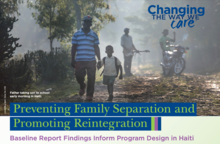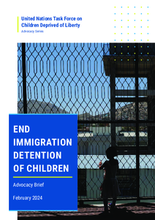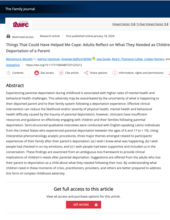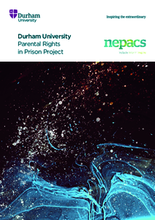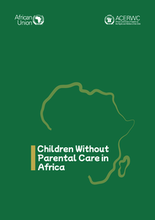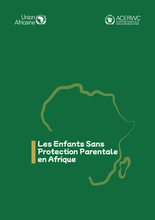Displaying 1 - 10 of 198
Prévenir la séparation des familles et favoriser la réinsertion familiale est une enquête de base menée par Changing the Way We Care Haïti visant à informer la conception d'un programme de réforme des soins axé sur la prévention de la séparatio
This is a comprehensive baseline survey by Changing the Way We Care Haiti aimed at informing the design of a robust care reform program focused on averting family separation and fostering sustainable reintegration.
This advocacy brief provides an overview of promising practices and lessons learned to end child immigration detention in the U.S. and sets out a range of policy actions needed to scale up efforts to end this form of violence.
Amy and Ano are twins, but just after they were born they were taken from their mother and sold to separate families.They found out about each other by chance and as they delved into their past, they realised thousands of babies in Georgia were stolen from hospitals and sold for adoption, some as recently as 2005. Now they want answers.
This webinar explored the role of the Catholic Church in responding to children who are migrating alone or who are at risk of or have been separated from their families in the context of migration.
This report presents findings from qualitative interviews conducted with English-speaking Latino individuals from the United States who experienced parental deportation between the ages of 6 and 17 years old. They offer suggestions about what they needed following their loss as a child. By understanding what children need in these moments of crisis, practitioners, providers, and others are better prepared to address this form of complex childhood adversity.
This is a report about the Parental Rights in Prison Project (PRiP) based in Wales and England aimed at supporting incarcerated parents who wished to sustain their relationship with their children who are in the care of the local authority, care of family and significant others or adopted and to provide them with legal advice and support around their rights as parents.
The African Committee of Experts on the Rights and Welfare of the Child (ACERWC/the Committee), in collaboration with African Union Member States, partner organizations, children and young people, launches the first of its kind Continental Study on Children Without Parental Care (CWPC) in Africa. The study, conducted from 2020 to 2022, amid the COVID-19 pandemic, covered over 43 countries in the five regions of Africa.
Le Comité africain d'experts sur les droits et le bien-être de l'enfant (ACERWC/le Comité), en collaboration avec les États membres de l'Union africaine, les organisations partenaires, les enfants et les jeunes, a lancé la première étude continentale en son genre sur les enfants sans protection parentale (CWPC) en Afrique. L'étude, menée de 2020 à 2022, au milieu de la pandémie de COVID-19, couvre plus de 43 pays dans les cinq régions d'Afrique.
During this webinar, participants explored the role of the Catholic Church in the separation of Indigenous children from their families and the long-lasting effect on Indigenous communities.


